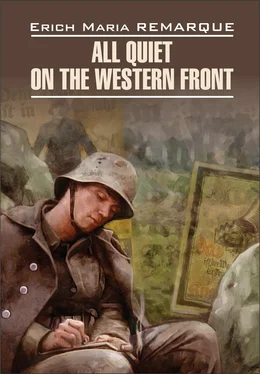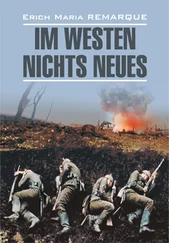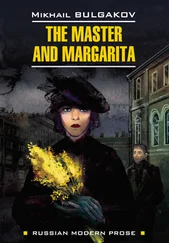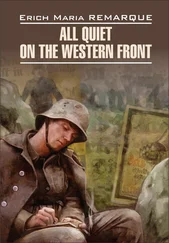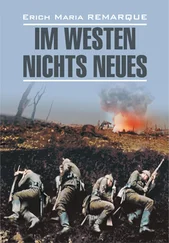Suddenly another machine-gun starts up from very close by. It is in a crater near us, and Berger has got hold of it; now there is a counter-attack from behind, we get out and manage to move backwards and join up with the rest.
Afterwards, by the time we have found some decent cover, one of the food carriers [255] food carrier – подносчик еды
tells us that there is a wounded messenger dog [256] messenger dog – посыльная собака
a couple of hundred yards away.
‘Where?’ asks Berger.
The food carrier describes the place for him, Berger sets off to fetch the animal or to shoot it. Even six months ago he would not have bothered about it, and would have behaved sensibly. We try to stop him. But when he sets off – and he’s serious about it – all we can say is ‘He’s crazy’, and let him go. These front-line breakdowns can be dangerous if you can’t wrestle the man to the ground straight away and hold him there. And Berger is over six foot and the strongest man in the company.
He really is mad, because he has to go through the barrage – but that sudden bolt from the blue [257] bolt from the blue – как гром среди ясного неба
that hovers over every one of us has hit him, and now he is a man possessed. The way it takes other people is to make them scream with rage, or run away, and there was one man who just kept on trying to dig himself into the earth with his hands, his feet and his mouth.
Of course there is a lot of shamming in situations like this, but even the shamming is really a symptom as well. Berger tries to put the dog out of its misery and is carried back with a shot through the pelvis, and even one of the men who fetches him gets a bullet wound in the calf.
Muller is dead. He got a Verey light in the stomach from close to. He lived for another half-hour, fully conscious and in terrible agony. Before he died he gave me his pay book and passed on his boots – the ones he inherited from Kemmerich that time. I wear them, because they are a good fit. Tjaden will get them after me – I’ve promised him.
We were actually able to bury Muller, but he probably won’t rest in peace for long. Our lines are being moved back. There are too many fresh British and American regiments over there. There is too much corned beef and white flour. And too many new guns. Too many aircraft.
But we are thin and starving. Our food is so bad and full of so much ersatz stuff that it makes us ill. The factory owners in Germany have grown rich, while dysentery racks our guts. The latrine poles always have men squatting over them. The people at home ought to be shown these grey or yellow, wretched, beaten-down faces, these figures who are bent double because of the enteritis that is squeezing the blood out of their bodies so much that the best they can do is to grin through lips trembling with pain, and say ‘It’s hardly worth pulling your trousers up again.’
Our artillery can’t really do much – they have too little ammunition, and the gun-barrels are so clapped out that they can’t shoot straight, and scatter stuff over towards us. We haven’t enough horses. Our new drafts are pitiful lads who really need a rest, unable to carry a pack but able to die. In their thousands. They understand nothing of the war, they just go over the top and allow themselves to be shot down. One single airman knocks off two whole companies of them just for fun, when they were just off a troop train and had no idea about taking cover.
‘Germany must be nearly empty,’ says Kat.
We are quite without hope that there could ever be an end to this. We can’t think nearly so far ahead. You might stop a bullet [258] You might stop a bullet – Можно получить пулю
and be killed; you might be wounded, and then the next stop is the military hospital. As long as they haven’t amputated anything, sooner or later you’ll fall into the hands of one of those staff doctors with a war service ribbon on his chest who says, ‘What’s this? One leg a bit on the short side? You won’t need to run at the front if you’ve got any guts. Passed fit for service! [259] Passed fit for service! – К строевой годен!
Dismiss!’
Kat tells a story that has done the rounds all along the front, from Flanders to the Vosges, about the staff doctor who reads out the names of the men who come up for medical inspection, and, when the man appears, doesn’t even look up, but says, ‘Passed fit for service, we need soldiers at the front.’ A man with a wooden leg comes up before him, the doctor passes him fit for service again – ‘And then,’ Kat raises his voice, ‘the man says to him, “I’ve already got a wooden leg; but if I go up the line now and they shoot my head off, I’ll have a wooden head made, and then I’ll become a staff doctor.” We all think that’s a really good one.
There may be good doctors – many of them are; but with the hundreds of examinations he has, every soldier will at some time or other get into the clutches of one of the hero-makers, and there are lots of them, whose aim is to turn as many of those on their lists who have only been passed for work detail or garrison duty into class A-l [260] A-l – класс, подтверждающий годность к строевой службе в военное время
, fit for active service.
There are plenty of stories like that, and most of them are more bitter. But for all that, they have nothing to do with mutiny or malingering; they are honest, and they call a spade a spade [261] call a spade a spade – называть вещи своими именами (досл. называть лопату лопатой)
; because there really is a lot of fraud, injustice and petty nastiness in the army. But isn’t it enough that regiment after regiment goes off into a fight which is becoming increasingly pointless in spite of everything, and that attack after attack is launched, even though our line is retreating and crumbling?
Tanks, which used to be objects of ridicule, have become a major weapon. They come rolling forward in a long line, heavily armoured, and they embody the horror of war for us more than anything else.
We cannot see the gun batteries that are bombarding us, and the oncoming waves of enemy attackers are human beings just like we are – but tanks are machines, and their caterpillar tracks run on as endlessly as the war itself. They spell out annihilation when they roll without feeling into the shell holes and then climb out again, inexorably, a fleet of roaring, fire-spitting ironclads, invulnerable steel beasts that crush the dead and the wounded. Before these we shrivel down into our thin skins, in the face of their colossal force our arms are like straws and our hand-grenades are like matches.
Shells, gas clouds and flotillas of tanks – crushing, devouring, death.
Dysentery, influenza, typhus – choking, scalding, death.
Trench, hospital, mass grave – there are no other possibilities.
In one attack Bertinck, our company commander, is killed. He was one of those fine front-line officers who are always at the forefront of every tricky situation. He had been with us for two years without being wounded, so something had to happen in the end. We are sitting in a shell hole and we have been surrounded. With the smell of cordite, the smell of oil or petrol wafts across to us. Two men with a flame-thrower are spotted, one with the cylinder on his back, the other holding the pipe where the fire shoots out. If they get close enough to reach us, we’ve had it, because just at the moment we can’t get back.
We start to fire at them. But they work their way closer to us, and things look bad. Bertinck is with us in the hole. When he sees that we are not hitting them because the firing is so heavy and we have to concentrate too much on cover, he takes a rifle, crawls out of the hole and aims, lying there propped on his elbows. He shoots – and at the same moment a bullet smacks down by him with a crack, he has been hit. But he stays where he is and aims again – he lowers his rifle once, and then takes aim; at last the shot rings out. Bertinck drops the gun, says, ‘Good’ and slides back. The second man with the flame-thrower is wounded and falls, the pipe is wrenched out of the other one’s hands, fire is sprayed all around and the man is burning.
Читать дальше
Конец ознакомительного отрывка
Купить книгу
